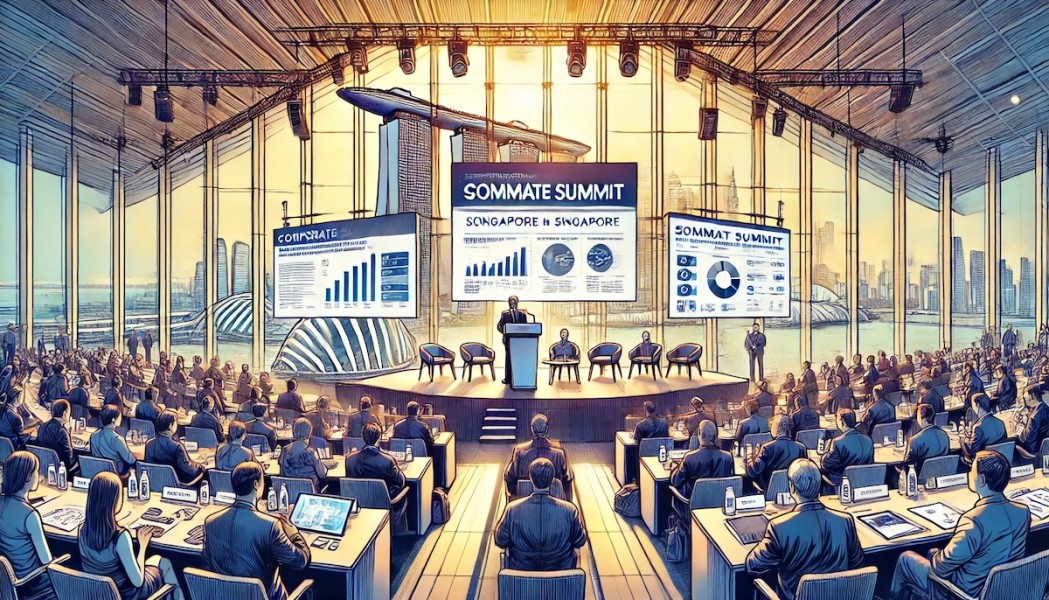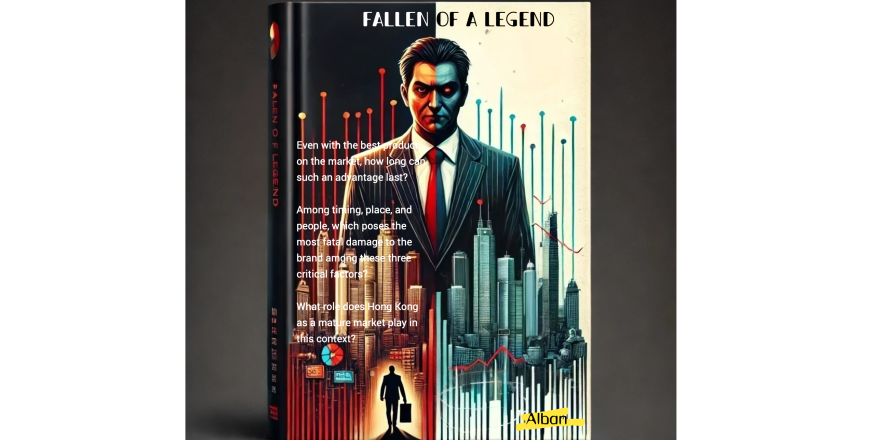 x
x
Allie Company’s Asia-Pacific Summit was a significant event that brought together top-tier professionals in the industry. With a history of careful organization and enthusiastic participation, the Hong Kong team always ensured the event was a success, providing a platform for learning and networking. Despite the departures of key figures like Dr. Fang, Miriam, Deborah, and Danny, their final efforts to ensure this year’s summit left a lasting positive impression on their clients reflected their dedication to the company and its values.

The Asia-Pacific Summit, held in Singapore this year, marked the first such event since the COVID-19 pandemic, and it was highly anticipated by doctors eager to reconnect after four years. Following the restructuring of the Hong Kong company, Danny was responsible for managing key clients, while Ma Yonglong led the effort to invite new doctors. While all key clients attended, the turnout of new doctors was disappointingly low.
This outcome was not surprising, given the difficulty of convincing busy Hong Kong doctors to leave their practices for a few days to attend a conference. Ma Yonglong had sent impersonal, generic invitations without understanding the doctors' needs or explaining the value of attending the summit. To make matters worse, Ma was unclear about the summit’s theme and speakers, using vague phrases like “interesting topics” and “experienced speakers,” which confused clients and resulted in a lack of interest.
As a result, with fewer attendees than expected, only Ma, Deborah, and Danny represented Hong Kong at the summit. It was the lowest participation from Hong Kong since Kenji had taken charge of the branch.
During the Asia-Pacific Summit, Ma Yonglong's lack of knowledge about both the products and the clients forced Deborah and Danny to take on an exhausting workload. They managed client complaints during the conference and organized evening gatherings, trying to maximize their opportunities to meet with key clients. However, due to the restructuring led by An Zhiren, Deborah and Danny had no choice but to accept the arrangements made by Taiwan, despite previously advocating for the preferences of Hong Kong clients.
Several embarrassing incidents occurred during the summit, but the most notable was the welcome dinner for Hong Kong and Taiwan clients. An Zhiren, believing everyone should embrace local customs, took the guests to a traditional open-air food stall in Singapore, disregarding Deborah’s insistence that Hong Kong clients needed air conditioning and a spacious environment. The guests were visibly uncomfortable, sweating profusely in the cramped, sweltering conditions. Although they politely expressed understanding, Deborah and Danny were filled with frustration and dismay.
An Zhiren, oblivious to the clients' discomfort, believed that offering them authentic local food should have made everyone happy. However, the reality was quite different—unhappy with the dining experience, the clients left the dinner early and headed back to the hotel, only to go out for a late-night meal elsewhere.

That evening, another embarrassing incident unfolded. After the uncomfortable dinner, the Taiwan management team forgot to arrange transportation for the Hong Kong clients to return to the hotel. This left dozens of clients in a chaotic situation, scrambling to book their own rides online, which only added to the frustration and awkwardness of the evening.

The events at the Asia-Pacific Summit in Singapore were just the tip of the iceberg. Throughout the summit, numerous incidents embarrassed the company, leading attending clients to feel increasing dissatisfaction and a sense that Allie Medical's former brilliance was fading.
An Zhiyin's authoritarian leadership fundamentally altered the open and collaborative culture that Allie had always been proud of. Employees no longer dared to voice their opinions, when things went wrong, there was no accountability. Ma Yonglong, now in charge, was the perfect example of this change—constantly second-guessing his superiors, and trying to please An Zhiyin while avoiding conflict with the Taiwan management team. His indecision and lack of leadership left Hong Kong’s Allie Medical trapped in a loop of internal friction.
The phenomenon of "involution" became the defining feature of the Hong Kong office. This term, rooted in the work of American anthropologist Clifford Geertz, refers to a situation where a society becomes trapped in repetitive patterns without progress or innovation. Geertz originally observed this during his field studies in Indonesia, where the agricultural practices and way of life had remained unchanged for centuries, despite the abundant resources. This lack of motivation to innovate due to complacency with the status quo mirrors the stagnation seen in many large enterprises. An Zhiyin’s rigid leadership stifled creativity and reduced Allie Hong Kong's once-dynamic workforce into a stagnant, unmotivated team.
Under An Zhiyin’s rule, Hong Kong’s Allie Medical employees adopted an apathetic attitude. Instead of striving to reach their full potential, they were content with mediocrity. They preferred to stay in their comfort zones, completing the minimum requirements rather than pushing boundaries. This complacency marked the decline of the once-thriving company culture established by Kenji.
The Asia-Pacific Summit in Singapore revealed several significant impacts of the new leadership style on Allie Hong Kong’s culture:
- Shift in Values: An Zhiyin’s appointment of Ma Yonglong symbolized a move towards a more authoritarian leadership style, weakening the open and collaborative culture built under the Queen's reign. Employees became less willing to share ideas or challenge decisions, creating a hierarchical environment.
- Fear Replacing Trust: An Zhiyin relied on manipulation tactics, such as using the "carrot and stick" approach. Employees felt compelled to follow orders out of fear, rather than driven by innovation or a sense of ownership, fostering a culture of fear over creativity.
- Erosion of Team Spirit: The mutual respect and support that had once defined the team spirit under Kenji’s leadership were eroded. Employees now prioritized their survival over collective success, damaging the cohesion that had once driven the company's growth.
- Talent Retention Issues: How the new leadership treated existing talent had a profound impact on employee loyalty. Deborah and Danny, high performers in the company, were sidelined due to their dissatisfaction with the new management style, employees knew that the company had become indifferent to loyalty and performance.
- Decreased Innovation: The open culture that once encouraged innovative thinking was now suppressed. Employees preferred to "do less, make fewer mistakes," stifling creativity and organizational growth.
- Customer Relationships: Leadership changes also impacted relationships with clients. The new management team failed to forge meaningful connections with customers, leading to a decline in trust and satisfaction, which further tarnished the company's reputation.
- Perception of Leadership: The perception of the leadership's character plays a crucial role in shaping company culture. If employees view the new leadership as self-centered and disconnected from reality, it leads to disengagement and a lack of loyalty.
In conclusion, An Zhiyin and Ma Yonglong’s leadership style fostered a culture of fear and compliance, eroding the openness and collaboration that once made Allie Medical strong. The resulting decline in morale, innovation, and customer relations laid the groundwork for the company's downfall.
ns 15.158.61.14da2





















